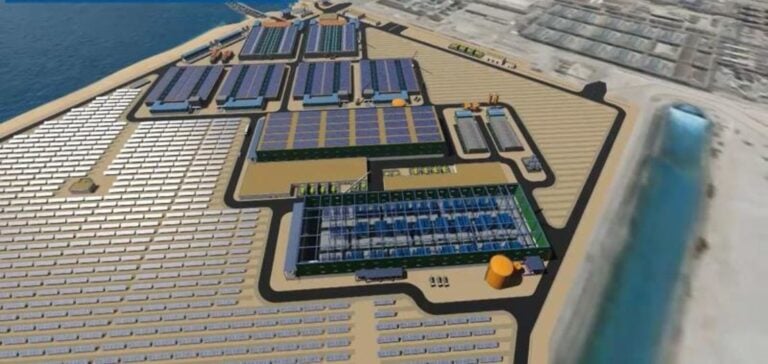Abu Dhabi, through the Abu Dhabi National Energy Company (Taqa), is acquiring approximately 5,000 MW of new gas-fired power generation capacity.
The plan is designed to support the United Arab Emirates’ (UAE) nationalartificial intelligence (AI) strategy initiative.
Several potential partners and equipment suppliers are currently in discussions with Taqa to participate in these projects.
The Dhafra and Al-Nouf sites are being considered, with Dhafra a likely priority.
Specialist consultancy firms are being approached to assess the modalities of these projects, which are part of a wider UAE effort to improve the national energy infrastructure, essential for the growth of AI-based technologies.
The new gas-fired facilities add to ongoing efforts to modernize the energy sector, while meeting growing AI-related needs.
AI strategy and the need for new capabilities
The UAE’s National Artificial Intelligence Strategy 2031, with its focus on attracting talent, integrating AI into key sectors and establishing effective regulation, requires a strong energy base.
The addition of new gas-fired power plants is designed to provide the flexibility and capacity needed for this transformation.
The choice of gas-fired power plants addresses the need for reliable electricity generation that complements renewable energies and can be adjusted to meet fluctuating needs.
The Dhafra and Al-Nouf power plant projects stand out from the two other projects currently underway, managed by Emirates Water & Electricity Company (Ewec).
The Taweelah C combined-cycle power plant, scheduled for 2028, and the Madinat Zayed open-cycle power plant, scheduled for 2027, also aim to enhance the stability of the UAE power grid, while remaining flexible for the integration of renewable energies.
Perspectives and Challenges for WATER
The Ewec and Taqa initiatives underline a pragmatic approach to energy diversification.
The Taweelah C project, for example, aims to provide transitional capacity to support the expansion of renewable energies.
Conversely, the Madinat Zayed project focuses on providing back-up capacity, ready to spring into action in response to rapid fluctuations in demand.
Ewec’s last major award of a combined-cycle power plant dates back to 2020, with the Fujairah F3 project awarded to Marubeni Corporation.
The new projects show continuity in the UAE’s strategy to increase its energy resilience and meet the demands of an increasingly high-tech economy.
These projects are part of a wider framework of energy capacity building to ensure that the UAE can attract the investment it needs to grow.






















